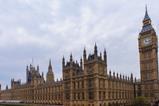The squeezed middle, those earning between £16,000 and £50,000 per annum, are most at risk to suffer financially if they are unable to work due to sickness or disability, according to a new report from think-tank Demos.
The Of Mutual Benefit report stated that as this group of workers would not be able to rely on state benefits to maintain their standard of living if they stop earning, income protection provides a significant safety net.
Research from Demos found that middle earners believe some form of incentive is needed to encourage them to take up income protection.
Demos has recommended that the government “recognises the personal responsibility - and savings to the Exchequer - that underpins income protection”, and suggests that employees are given an incentive of a £100 national insurance rebate, which could save the state £2.24 billion in unemployment benefits.
Jack McGarry, chief executive officer of Unum, and supporter of the research, said: “People simply don’t believe that ill health or disability will affect them. Yet you are three times more likely to be unable to work due to sickness or disability, as you are to die.
“One million people are sick or disabled each year and half are still disabled a year later. As a nation we are spending too much on life insurance and not enough on income protection.
“Just one in 10 UK workers have their income protected if they fall ill. For most people the support available from the state is not adequate and would mean a big change in their standard of living.
“Unum wants more employers to offer income protection to their workers so that more people have a back-up plan should they fall ill.
“Employer-funded schemes make the benefit more affordable, available and provides better access to information.
“What’s more, Demos believes that incentivising income protection take-up could actually save the state £2.24 billion, whilst protecting more people.”
Read more articles on income protection schemes
















